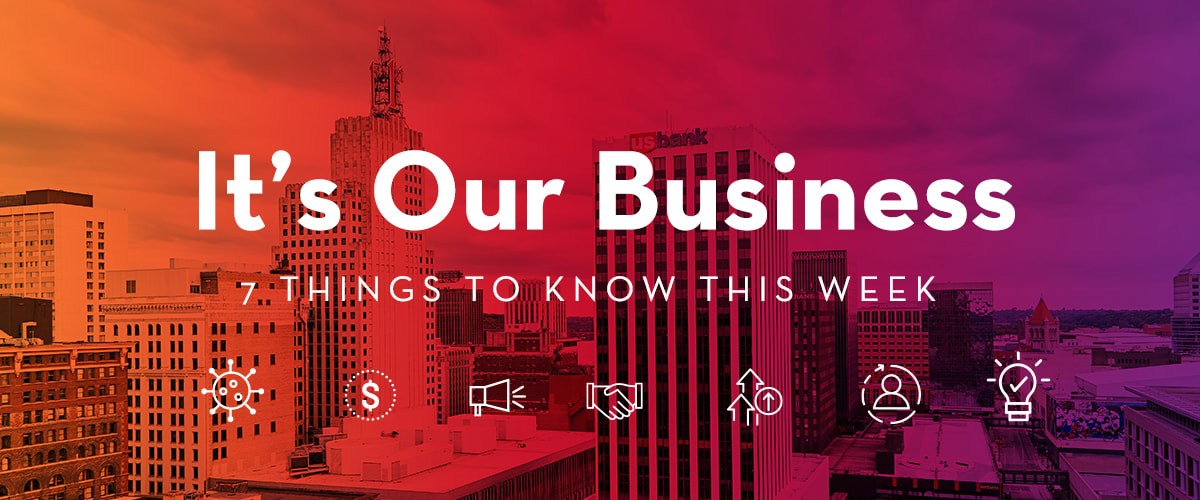|
My thoughts today spring from this startling statement: nearly 40% of the world’s money supply was added in the last 13 months alone – representing between $2.5 and 3T. Yes, we are “printing money.” What does this mean for inflationary pressure? I recently listened to a portion of the May 2021 Berkshire Hathaway Annual Meeting at which Warren Buffett spoke on inflation: “we’re seeing very substantial inflation…the cost are just up, up, up. Steel costs, every day, they’re going up… the economy is red-hot, and we weren’t expecting it.” Buffett went on to say, “people have money in their pockets and they pay higher prices…the supply chain’s screwed up for all kinds of people…it’s almost a buying frenzy… Meanwhile, it’s a terrible situation for a percentage of the people. It is not a price sensitive economy right now in the least. I don’t know how exactly it shows up in various pricing indices, but there’s quite a bit more inflation going on than people would have anticipated 6 months ago.” At its March meeting, the Federal Open Market Committee (FOMC) forecasted that the U.S. inflation rate will average at 2.4% in 2021, then decrease to 2.1% by 2023 That said, the average consumer is experiencing surging prices today in many different areas. Fundamentally, there is pressure on raw materials like steel, lumber, petroleum inputs. The scarcity factor is real. As one example, low inventory and skyrocketing lumber prices have increased the price of a typical new home by nearly $36,000. Making it even more personal, the price of food is creeping higher – and will stay that way for a while. I went to my favorite economists: Bank of America, Wells Fargo, and U.S. Bank. To a one they are expressing caution – economic growth should be strong, but so too will be inflationary pressures. The question, then, becomes: how far and how quickly will inflation increase? The Fed is confident in their ability to deal with it. But, as CNBC’s Jeff Cox said so well this past Friday, “If the Federal Reserve’s benign view on inflation prevails, employment will be key”. We’ll talk about employment next week. See you in the trenches. B As of Saturday, June 12, our 7-day average of cases is at 169 – lowest since April of 2020. This reflects a positivity rate of 1.4%. At the same time, our vaccination rate is at 55.6% (1 dose) and 48.6% (fully vaccinated) of eligible population. The vaccination pace now is crawling. Wealthy countries are pledging to donate vaccines: meetings of the G7 began yesterday, and several of these countries are intending to commit 1B vaccines. The U.S. will buy 500M more doses for donation to 92 lower income countries and the African Union over the next year, towards an anticipated need of more than 10 billion vaccinations. At a cost of $5-7/shot, the need represents $50-70B hugely significant and yet it represents less than 1% of the global economic output this year. SBA to open Targeted EIDL Advance grant to all eligible businesses – one of the few remaining programs that is funded. And the SBA aims to raise the loan limit to $2M. Twin Cities Restaurant Roundup: Who's opening, reopening and closing St. Paul’s City Council is proposing a Right to Recall ordinance requiring that hotels and event centers give those who lost jobs during the pandemic the first chance to get rehired. Your Chamber wrote a letter of opposition to Ordinance 21-20 because the ordinance is, in a word, nonsensical. Employers are desperate for workers, and no one we know is deliberately passing over qualified employees. Quite the opposite. This action is not in response to “bad actors.” Instead, beyond the logistics and intrusion of city government into the employer-employee relationships, this ordinance amplifies the vilification of businesses in St. Paul. It implies that there is an action so negative that it requires council response. Sponsored by all seven councilmembers, the proposed ordinance certainly has enough support; stay tuned. Last week marked the formal kickoff of the #WelcomeBackStPL campaign and the return of Lowertown Sounds. Please check out WelcomeBackStPL for upcoming events and join us! And Your Chamber wants to see you - please join us! 5 ways companies can embrace the ‘future of work’ A recent study from Accenture found that more than 83 percent of workers say a hybrid office is the optimal route forward. Inclusion is not someone else’s responsibility. Mark Benton, a VP of Talent Management and Development at McKesson, talks about how it starts with individual decisions and behaviors. Cargill investing $6M to support people of color, women students Target, General Mills, other large companies commit to spend at least 2% of annual media budgets on Black-owned media companies Customer Expectations for DEI Engagement Are Seeping into the SME Sector Building capacity for fun -- we are thrilled that the Fair Is On! www.mnstatefair.org
0 Comments
Leave a Reply. |
Archives
July 2024
|
|
Address:
401 Robert St. N., Suite 150 St. Paul, MN 55101 |
Office Lobby Hours:
Monday: Closed Tuesday: 9AM–4PM Wednesday: 9AM–4PM Thursday: 9AM–4PM Friday: Closed |
Get weekly news on local businesses, events, offerings and more.
|
|
Board Member Login
|
©2022 St. Paul Area Chamber. All Rights Reserved.
|








